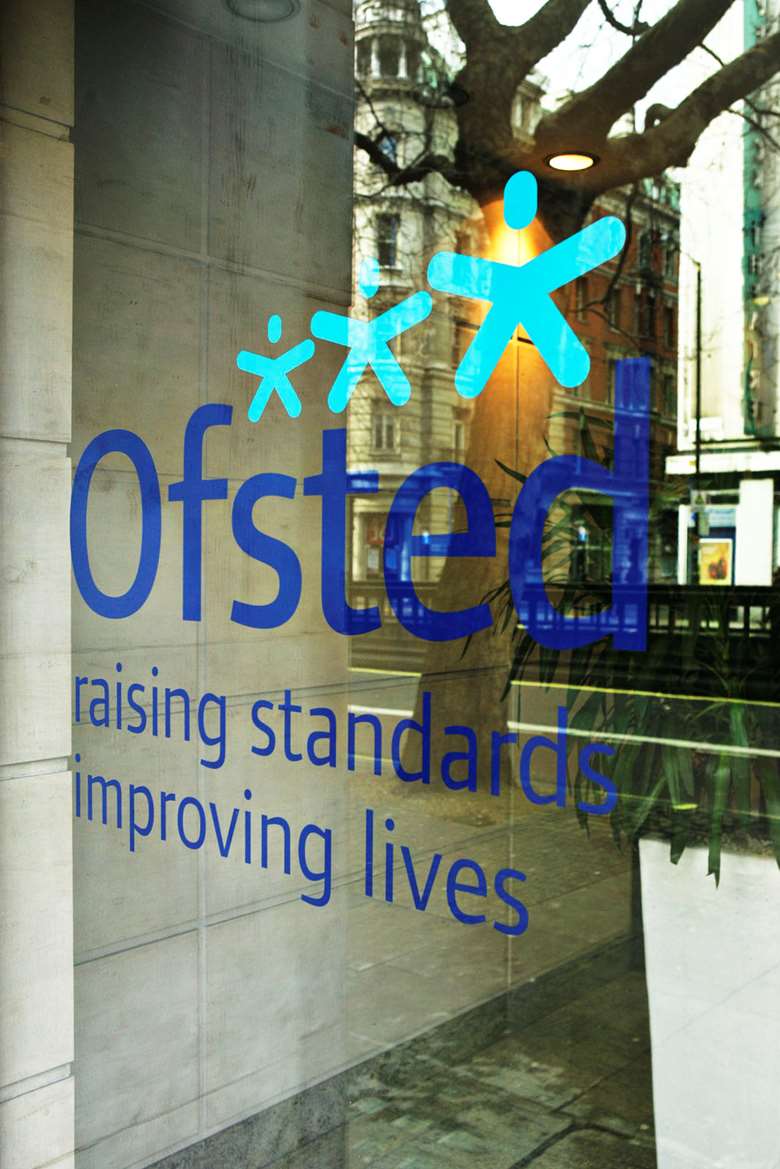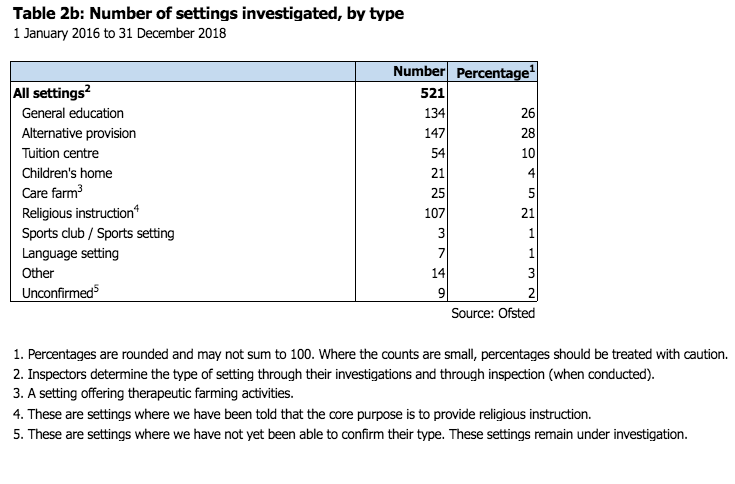Ofsted: Thousands of children at risk in illegal schools
Joanne Parkes
Thursday, April 11, 2019
Up to 6,000 children are being schooled in suspected illegal settings across England, according to data gathered for the first time by Ofsted.

The schools - some of which receive local authority funding - are potentially putting children at risk, warns the inspectorate. Some have poor facilities and hygiene, untrained and unchecked staff, and "little care for children's health and wellbeing".
Ofsted has carried out 780 inspections and investigations of suspected unregistered settings since a specialist taskforce was set up more than three years ago.
Ofsted pledges, where necessary, to prosecute such settings, which do not benefit from any formal external oversight of safeguarding, health and safety, or quality of education.
In total, 71 settings have been issued with a warning notice by inspectors. Some 15 of those have since closed, while 39 have changed the way they operate in order to comply with the law, and nine have registered as independent schools.
- Home schooling survey reveals rising concerns over 'off-rolling'
- Analysis: The factors driving the increase in children educated at home
Almost a quarter of the settings investigated are in London, with the rest spread across the country.
Some 150 settings - 28 per cent of those investigated - are in the alternative provision category, which take children who have been excluded or who have left mainstream education.
While these are private organisations, some have reportedly received public money.
One, which has not been identified, is said to have received £27,000 a year per child from the local authority.
Around a quarter (26 per cent) of the settings are general education providers, and a fifth (21 per cent) are places of religious instruction.
An unregistered school is defined as operating as an independent school without registration - a criminal offence in England.

In a landmark case in London last year, two people were prosecuted for running an illegal school
Victor Shafiee, Ofsted's deputy director in charge of the unregistered schools taskforce, said the watchdog continues to have "serious concerns" about the practice.
"As today's data shows, this is not simply an issue with faith settings, nor is it limited to certain areas of the country," explained Shafiee.
He said that "not all of them are run with malicious intent", but added: "These settings deny children a proper education and can leave them at risk of harm.
"The problem here is first and foremost about safeguarding. Many of these places are unsafe - with poor facilities and hygiene, badly trained or untrained staff, who may not have had any employment checks made on them, and little care for children's health and wellbeing.
"Ofsted will continue to do everything we can to investigate and inspect unregistered schools, and where necessary we will seek to prosecute those running them."

To be required to register as a school, a setting must be providing full-time education to at least five children of compulsory school age, or one child who is looked after by the local authority or has an education, health and care plan. The setting must operate from a building, and must offer a curriculum that includes maths and English.
There is currently no legal definition of "full-time education", but the Department for Education (DfE) has issued guidance to say that 18 hours or more a week is likely to qualify.
Ofsted said that some providers operate on the "cusp of the law" by operating for 17 hours and 50 minutes per week.
Settings that offer only religious instruction are also able to "evade registration" said the watchdog, even though they operate full time and their pupils do not receive an education anywhere else.
Ofsted welcomed as a "first step" the DfE's proposal for a register of children not in school but added that it would continue to call for the legislation to be strengthened, and for additional powers that would allow inspectors to collect evidence they find in unregistered schools.
Ofsted's unregistered school's taskforce was established in January 2016 to investigate and inspect suspected illegal schools and receives £1m a year from the DfE.




